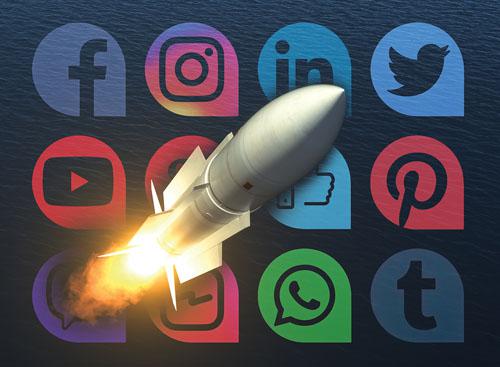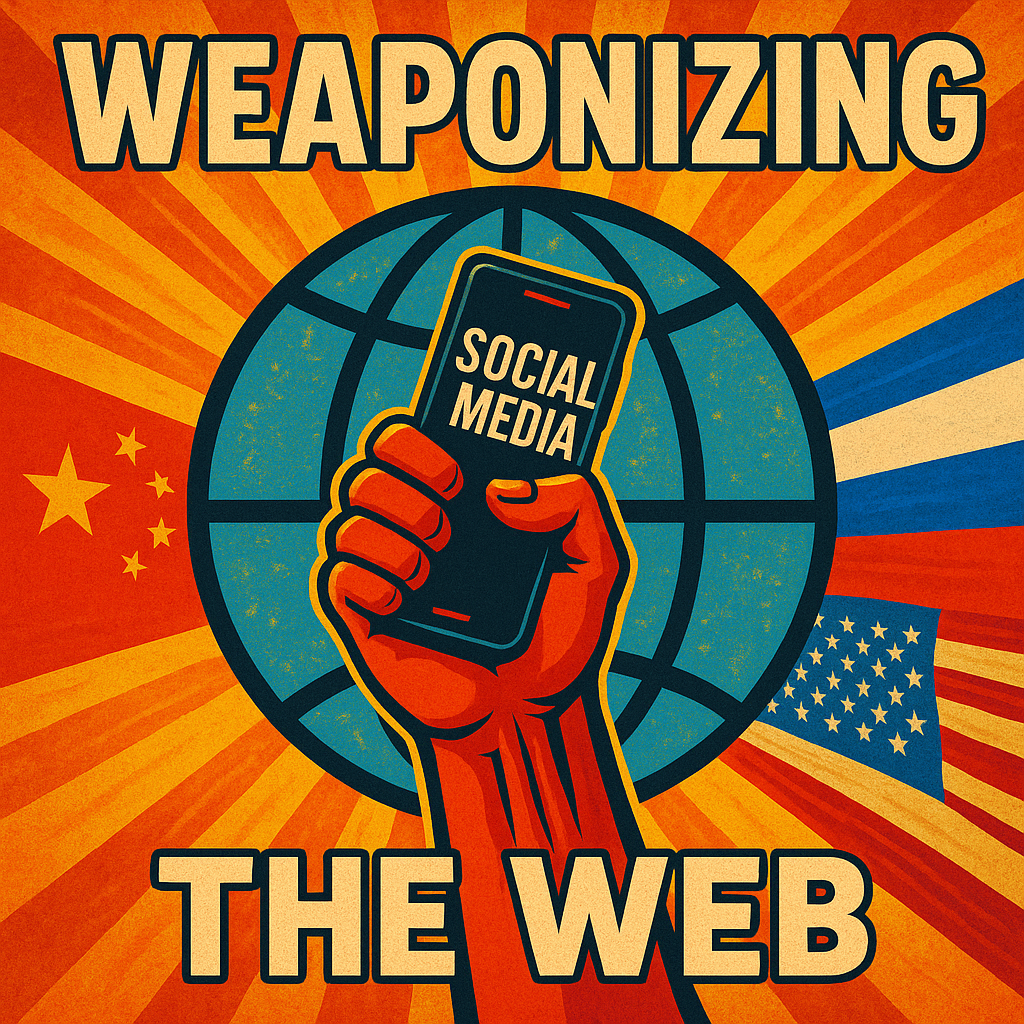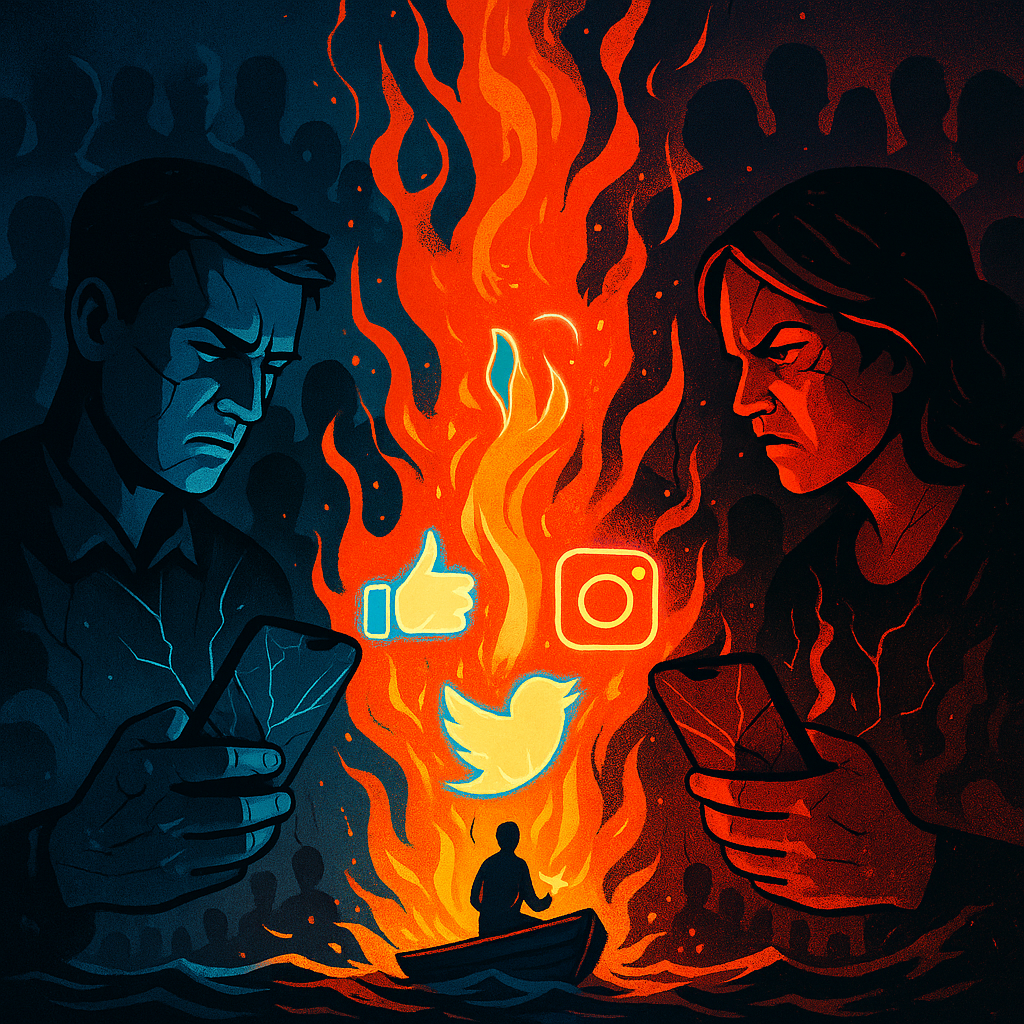How Politics Has Corrupted and Weaponized Social Media
The Weaponization of Social Media – In today’s interconnected world, social media has become an indispensable tool for communication, information dissemination, and community building. However, alongside its numerous benefits, there has been a darker evolution. Politics has increasingly corrupted and weaponized social media, transforming it into a battlefield for ideological conflicts and misinformation. I will delve into how this phenomenon has unfolded, provide concrete examples, and discuss its far-reaching consequences.
The Intersection of Politics and Social Media
Social media platforms like Facebook, Twitter, Instagram, and YouTube were initially designed to foster connectivity and share personal experiences. Over time, these platforms have evolved into powerful tools for political communication and mobilization. Politicians, parties, and interest groups quickly recognized the potential of social media to reach millions of users directly, bypassing traditional media channels.
The Corruption of Social Media by Politics
Misinformation and Fake News
One of the most significant ways politics has corrupted social media is through the spread of misinformation and fake news. Political actors often exploit these platforms to disseminate misleading or false information, aiming to sway public opinion or discredit opponents.
Example: The 2016 U.S. Presidential Election During the 2016 U.S. presidential election, social media was inundated with fake news stories and misinformation campaigns. Research by the Pew Research Center found that nearly two-thirds of American adults reported encountering fake news stories online. This misinformation ranged from false reports about candidate policies to completely fabricated stories designed to generate outrage and division.
Echo Chambers and Polarization
Social media algorithms are designed to maximize user engagement by showing content that aligns with their interests and beliefs. While this increases user activity, it also creates echo chambers where individuals are only exposed to viewpoints that reinforce their existing opinions. This phenomenon has significantly contributed to political polarization, as users become more entrenched in their views and less open to opposing perspectives.
Example: Brexit The Brexit referendum in the United Kingdom is another example where social media played a crucial role in deepening societal divisions. Pro-Brexit and anti-Brexit groups used targeted ads and posts to reinforce their narratives, often emphasizing extreme viewpoints and fostering hostility towards the other side. The resulting echo chambers made it challenging for rational debate and understanding to take place.
Bots and Trolls
Automated accounts (bots) and coordinated human accounts (trolls) are frequently used to amplify political messages, spread misinformation, and harass opponents. These tactics are employed by state and non-state actors to manipulate public discourse and create the illusion of widespread support or opposition to specific issues.
Example: Russian Interference Numerous investigations, including those by the U.S. Senate Intelligence Committee, have documented how Russian operatives used bots and trolls to interfere in the 2016 U.S. presidential election. These accounts disseminated divisive content, promoted fake news, and attempted to influence voter behavior. The goal was to sow discord and undermine trust in the electoral process.
The Weaponization of Social Media
Cyberbullying and Harassment
Political figures and activists are often targeted by cyberbullying and harassment on social media. These attacks can range from derogatory comments and threats to doxxing (publishing private information). Such tactics are used to intimidate and silence individuals who express dissenting opinions.
Example: Female Politicians Female politicians, in particular, face disproportionate levels of harassment online. A study by Amnesty International found that women in politics receive significantly more abusive tweets than their male counterparts. This harassment not only affects their mental health but also discourages women from participating in political discourse.
Data Exploitation
Political campaigns have increasingly used data analytics to micro-target voters with personalized messages. While this practice is not inherently negative, it raises ethical concerns when data is collected without user consent or used to manipulate voter behavior subtly.
Example: Cambridge Analytica Scandal The Cambridge Analytica scandal revealed how the data of millions of Facebook users was harvested without their knowledge and used to influence voter behavior in the 2016 U.S. presidential election and the Brexit referendum. This data exploitation highlighted the vulnerabilities in social media platforms’ handling of user information and the potential for abuse.
Amplification of Extremism
Social media can amplify extremist views by providing a platform for fringe groups to spread their ideologies and recruit members. Political actors may exploit these dynamics to mobilize support from radical elements or to discredit their opponents by associating them with extremism.
Example: QAnon The rise of the QAnon conspiracy theory is a stark example of how social media can amplify extremism. QAnon followers believe in a complex and unfounded conspiracy theory involving government officials and celebrities. Social media platforms like Twitter and Facebook were instrumental in spreading QAnon content, leading to real-world consequences such as the storming of the U.S. Capitol on January 6, 2021.
The Consequences of Political Corruption and Weaponization of Social Media
The corruption and weaponization of social media by politics have profound implications for democracy, social cohesion, and individual well-being.
Erosion of Trust
The spread of misinformation and the use of manipulative tactics undermine public trust in information sources and democratic institutions. When citizens cannot distinguish between reliable information and falsehoods, their confidence in the electoral process and governance erodes.
Increased Polarization
Echo chambers and the amplification of extreme views contribute to societal polarization. This division makes it difficult for individuals and groups to find common ground, fostering a climate of hostility and conflict.
Threats to Free Speech
Cyberbullying and harassment create an environment where individuals are afraid to express their opinions freely. This chilling effect on free speech undermines democratic principles and stifles healthy political debate.
Moving Forward: Solutions and Recommendations
Addressing the corruption and weaponization of social media by politics requires a multi-faceted approach involving technology companies, governments, and individuals.
Technology Companies
- Enhance Content Moderation: Social media platforms must invest in robust content moderation systems to identify and remove misinformation, hate speech, and harassment promptly.
- Improve Transparency: Platforms should provide greater transparency regarding their algorithms and data usage policies, allowing users to understand how their information is collected and utilized.
- Promote Digital Literacy: Companies can support initiatives to improve digital literacy, helping users critically evaluate online content and recognize misinformation.
Governments
- Regulate Data Privacy: Governments should enforce strict data privacy regulations to protect users’ information and prevent exploitation by political actors.
- Combat Foreign Interference: International cooperation is necessary to address state-sponsored misinformation campaigns and protect the integrity of democratic processes.
- Support Media Literacy: Public education campaigns can enhance citizens’ media literacy, enabling them to navigate the digital landscape more effectively.
Individuals
- Verify Information: Users should verify the accuracy of information before sharing it, relying on reputable sources and fact-checking organizations.
- Engage Respectfully: Civility in online interactions can help reduce polarization and promote constructive dialogue.
- Advocate for Change: Individuals can advocate for stronger regulations and accountability from social media platforms and political actors.
Conclusion
The intersection of politics and social media has transformed these platforms into arenas of ideological conflict and manipulation. By understanding how politics has corrupted and weaponized social media, we can better navigate the digital landscape and work towards solutions that preserve the integrity of democratic discourse. It is crucial for technology companies, governments, and individuals to collaborate in creating a more transparent, respectful, and informed online environment.




